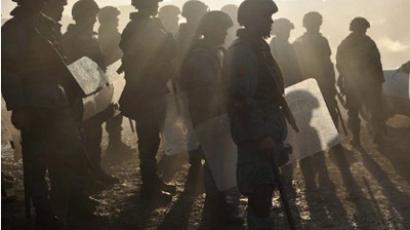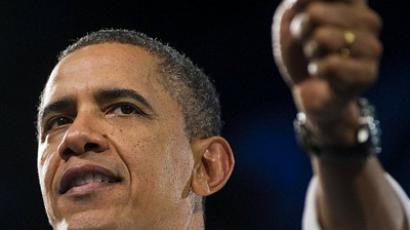Obama and Cameron: The good, the bad or the ugly?
In a joint article published in the Washington Post, the two leaders called the US-British relationship "a partnership of the heart, bound by the history, traditions and values we share." But what has that partnership really achieved?
Both the US President and the British Prime Minister devoted a lot of time to the ongoing mission in Afghanistan. “As the two largest contributors to the international mission in Afghanistan, we're proud of the progress our troops have made in dismantling Al-Qaeda, breaking the Taliban's momentum and training Afghan forces,” the two men wrote.But is that really the case? Recent events in Afghanistan lead many to doubt Obama and Cameron’s professed optimism. The horrifying massacre of innocent civilians by an American soldier has caused outrage across the country, and the Afghan people have never been as vocal about their desire to see US troops leave. This, of course, just after another terrible incident in Afghanistan – the burning of the Koran by US forces, another act which has caused the people of Afghanistan to take to the streets. As a result, violence is escalating. Al-Qaeda has stepped up attacks on coalition force bases. And ten years after NATO troops entered the country, peace is not a reality – but chaos is. Both Obama and Cameron claim to be leaders of “two nations that support the human rights and dignity of all people” – and yet more and more scenarios arise in Afghanistan and elsewhere that show those very rights and dignities denied to both the living and the dead. The outrageous scandal in January 2012, where soldiers were seen urinating on corpses; the burning of the Koran and slaughter of women and children – all those incidents were, according to the US President, “not representative” of the US military as a whole. And yet they keep happening. Investigative journalist Simon Assaf told RT that morale is at an all-time low, and that is precisely why Obama and Cameron are trying to sugarcoat the situation. “You just feel that the whole moral case for the war has collapsed, so I suspect they’ll be trying to find brave words to cover what I think is quite a disastrous situation for them,” Assaf said.
Karim Sherin, chair of the Afghan Association of London, told RT that the US-UK relationship goes deeper than the issue of Afghanistan, and that the two countries have not been deterred from their plan to withdraw from that country by 2014. “I think that they are both pretty committed to the withdrawal from Afghanistan,” he noted. “I hope that before they withdraw their troops they come to a political solution in Afghanistan, and not leave the country to become the capital of terrorism again.”Brave words are certainly aplenty in the article. The two men talk of dignity, civil liberties and rights for the world – and the responsibilities they bear as leaders. They certainly talk the talk – but do they walk the walk? “With confidence in our cause and faith in each other, we still believe that there is hardly anything we cannot do,” says the article. However, what they seem to want to do doesn’t quite fit the uplifting nature of those words. Possible war with Iran. Possible military invasion of Syria. And even the rhetoric used in the article was somewhat disconcerting. Quoting Winston Churchill, the two leaders wrote, ”Our victories on the battlefield proved what can be achieved by British and Americans working together heart and hand. In fact, one might almost feel that if they could keep it up, there is hardly anything they could not do, either in the field of war or in the not less tangled problems of peace.”But, as critics say, there seem to be too many battlefields in the allies’ future.














